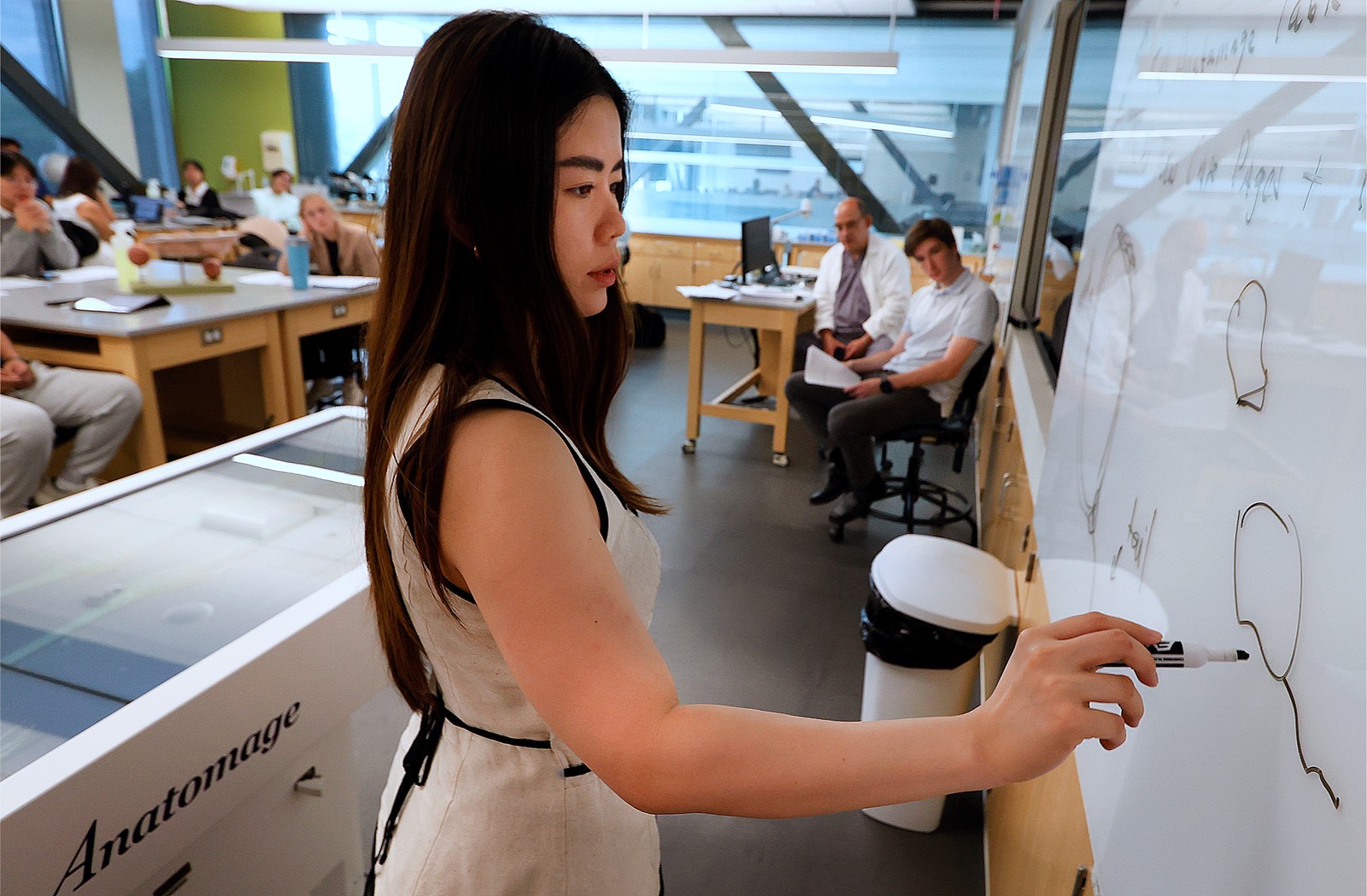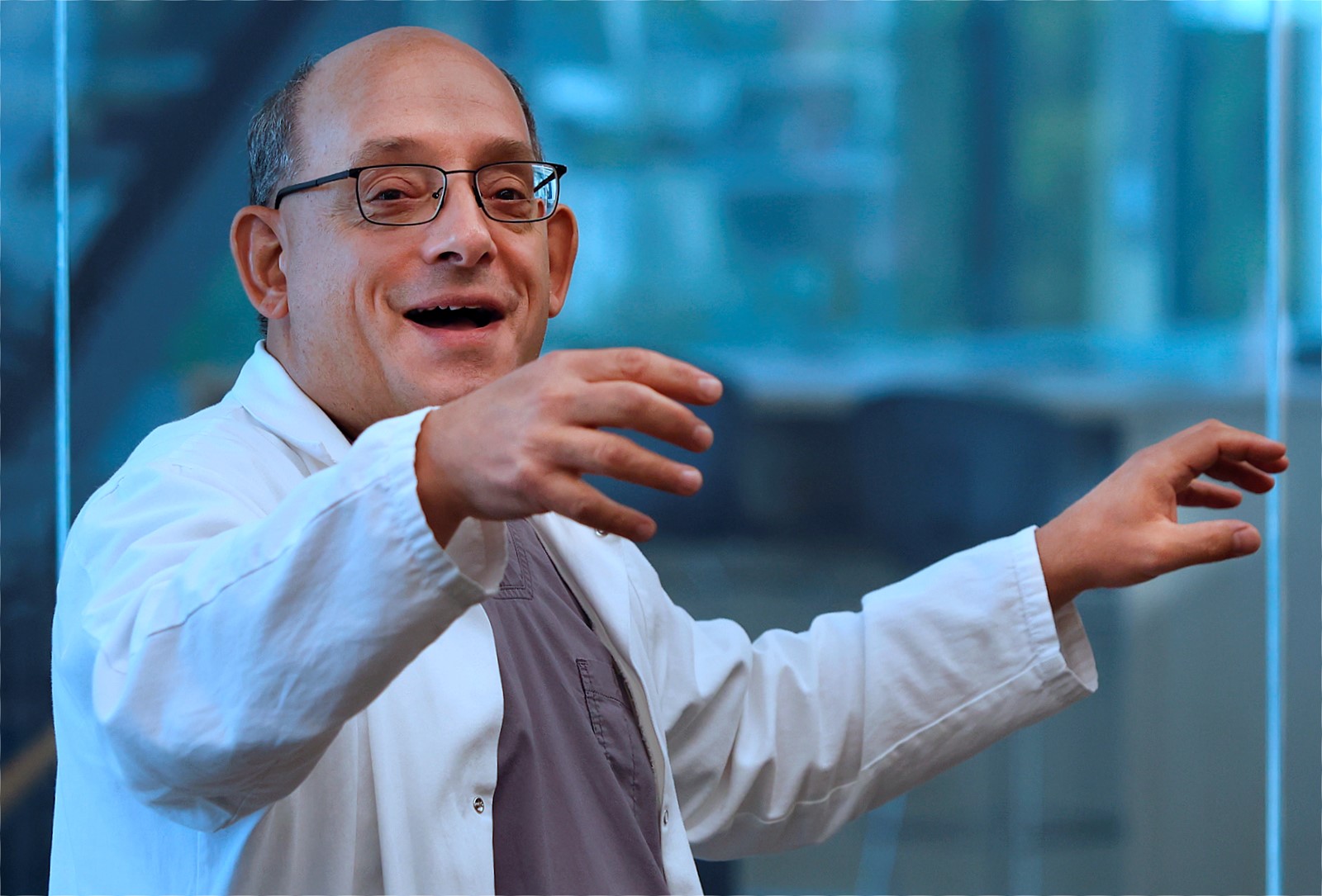

Ernest Talarico Jr.’s students, for a brief moment, had a serious-yet-somewhat amusing question to ponder: Should a middle-aged male triathlete wear boxers or briefs if he and his wife want to conceive a child?
It took a minute for the students — many of them students, residents and doctors from Vietnam — to overcome the slight embarrassment of discussing the patient’s “tighty whiteys” — as Talarico called them — to lighten the mood Wednesday afternoon. The discussion, however, part of Talarico’s Advanced Problem Solving course at Purdue Northwest, was but a small part of a complete case study on reproductive care.
The answer, which the students also gleaned from slides of the case study’s sperm sample, was no, the man shouldn’t wear constrictive clothing, nor keep exercising at such high intensity and taking high doses of Omega-3 fatty acids and nitrous oxide boosters. He also needed to stop blaming his wife — also part of the case study — for the fact that they were having trouble conceiving, as the students discovered later.
The course is part of what Talarico calls “building a better doctor,” he said as the students read more of the case study. Each of them has conducted research that they’ll present at a symposium on Purdue University’s main campus in West Lafayette in the coming weeks, capturing their own images and designing posters, he said.
He’s also had the students practicing their patient-interaction skills, with one student acting as the doctor and the other as the patient.
Cailey Weber, a biology major from Hobart, had to role-play breaking it to the male patient that he was the reason his wife wasn’t getting pregnant, while Sarah Sues, a nursing student from St. John, got to explain to the wife that while she had some issues, the issues weren’t rendering her infertile.
“Relearning all this in a different environment is inspiring,” Sues said. “It’s been intriguing talking with the (Vietnamese students).”
Additionally, the students train on a table that mimics conducting an autopsy, taking them through all the systems parts of the body. For Phuong Ngan Nguyen Ba, a medical student currently living in Chicago, that’s been a game-changer.
“I’ve already been through medical school in Vietnam, and we didn’t have the technology then for this,” she said. “If I were just starting med school, I’d prefer the table to explore first before a traditional cadaver.”
The Vietnamese students are here for the month, Talarico said.
Dhruva Magesh, an incoming Junior at Lake Central High School, met Talarico during a Science Olympiad meet in 2024. This is his second time taking Talarico’s class.
“There’s so much more to (medicine) than we can even imagine,” Magesh said.
Michelle L. Quinn is a freelance reporter for the Post-Tribune.


 PREVIOUS ARTICLE
PREVIOUS ARTICLE
